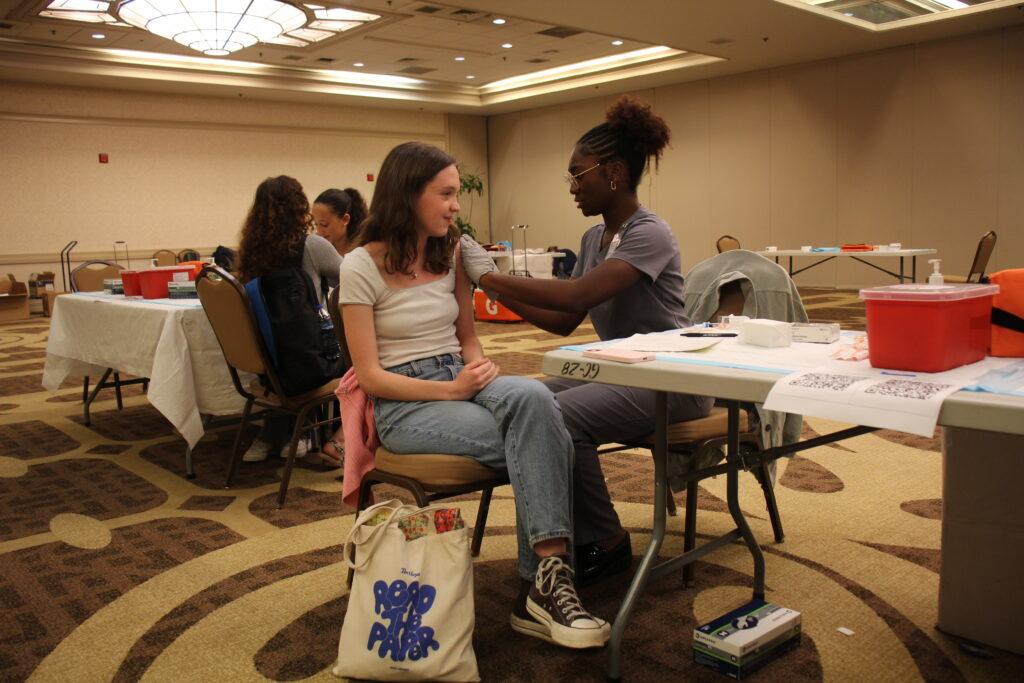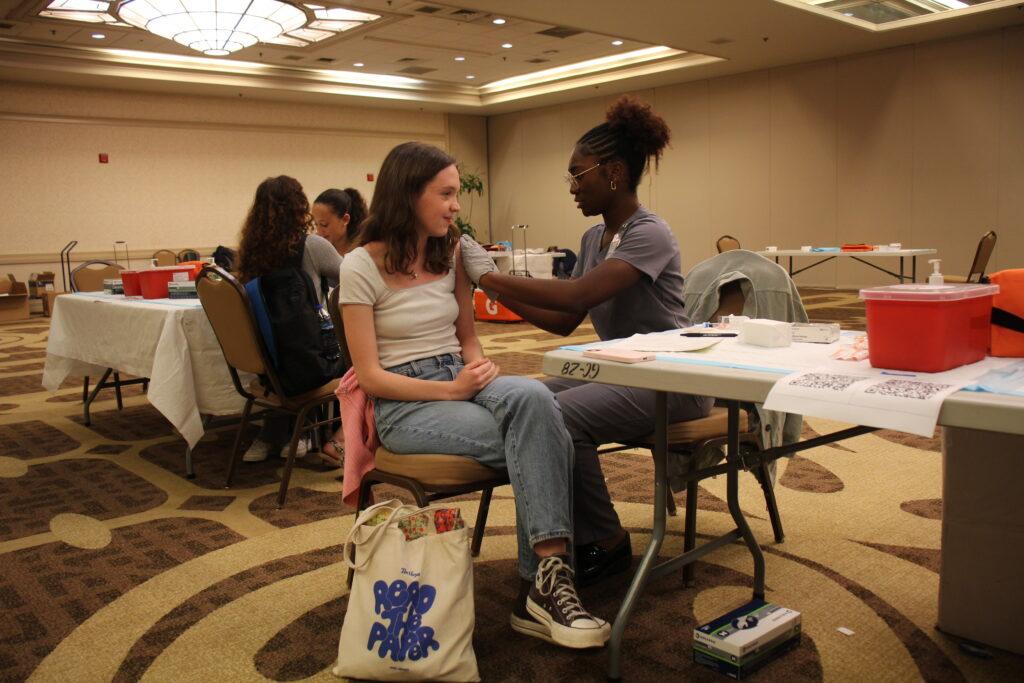The Georgetown University School of Nursing (SON) will host free, walk-in influenza vaccination clinics Sept. 28 and Oct. 3 in the Leavey Center Ballroom.
Georgetown will also offer flu and COVID-19 vaccinations through a partnership with Safeway Pharmacy during October. These clinics, which require that students show their health insurance card, will occur at the main campus, the Law Center and the School of Continuing Studies.
In an email to the community, Assistant Vice President for Student Health Kathryn Castle and Chief Public Health Officer Dr. Ranit Mishori (MED ’02) announced their goal of allowing as many students as possible to be vaccinated. .
“We strongly encourage you to get vaccinated against the flu and COVID-19 at one of these upcoming clinics or at a pharmacy near you this fall,” Castle and Mishori wrote in the email.
Mishori said that the vaccines are a key measure to prevent disease outbreaks at Georgetown, especially with flu season approaching and COVID-19 cases on the rise in Washington, D.C.
“COVID is here to stay, and the fact that these vaccines are very effective in preventing disability, long COVID and death is a reason we’re offering it to everybody on campus,” Mishori told The Hoya.
The on-campus flu vaccination clinics will not require health insurance, a scheduled appointment or any form of payment. Mishori hopes that by offering these crucial vaccines at no cost, all students can take advantage of the clinics.
“We are so convinced of their benefits to your health that we’ll do anything we can to try to eliminate all barriers to getting vaccines, whether it’s the flu vaccine or the COVID vaccine,” Mishori said.
She added that in addition to attending the vaccine clinics, students can take everyday precautions to protect themselves from viruses, especially as the United States continues to experience increasing COVID-19 hospitalizations and deaths.
“The easiest thing to do is to get vaccinated, and then of course hand washing, masking when necessary and just keeping areas clean,” Mishori said.

Marianne Savane (SON ’25), who will help administer flu vaccines on campus, said that all third-year nursing students have been assigned to help with the clinics. Savane said she hopes students will continue to take appropriate measures to protect themselves and others in the community from flu and COVID-19.
“People have been really good about reporting and getting tested,” Savane said. “Staying home or wearing a mask, if comfortable, are good ways to stay healthy.”
Additionally, Mishori said that students can keep their immune systems strong during flu season by sticking to healthy habits.
“For general health and well-being, there are a lot of other things students can do, from good nutrition, getting enough sleep and exercising,” Mishori said.
While individuals can prevent the spread of viruses with these personal measures, Georgetown’s Public Health Operations Unit, founded and co-directed by Mishori, is enacting large-scale public health initiatives, like the vaccine clinic, to protect the health of the entire community.
Mishori and her colleagues use data from organizations such as the D.C. Department of Health and conduct disease surveillance at Georgetown to prevent and manage disease outbreaks.
“We are constantly monitoring what’s happening on campus,” Mishori said. “We get reports from the CDC and health department about looking out for certain things. We work with student health very closely to see if there is any uptick in any particular disease.”
Mishori said that students are also key contributors to disease surveillance. When students report their health data to the university, the community becomes more knowledgeable about public health threats.
“If there’s something going on that we need to know about, you can reach out to either Student Health or the public health team. Oftentimes, we get the first inkling of something going on from somebody getting in touch with us,” Mishori said.
Mishori hopes that by hosting this clinic and implementing a multitude of surveillance measures, Georgetown can create a safe and healthy environment for its students.
“Disease surveillance is something we do every day in order to keep the finger on the pulse of what’s happening,” Mishori said.









